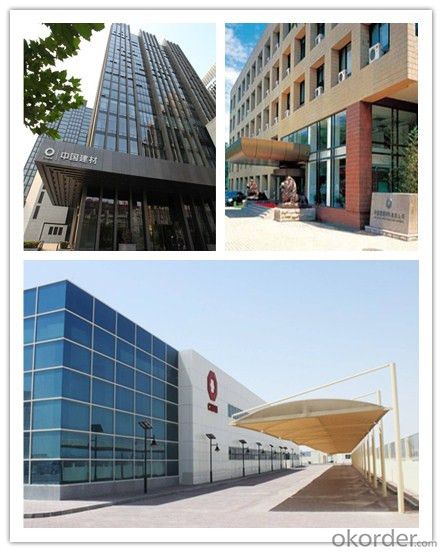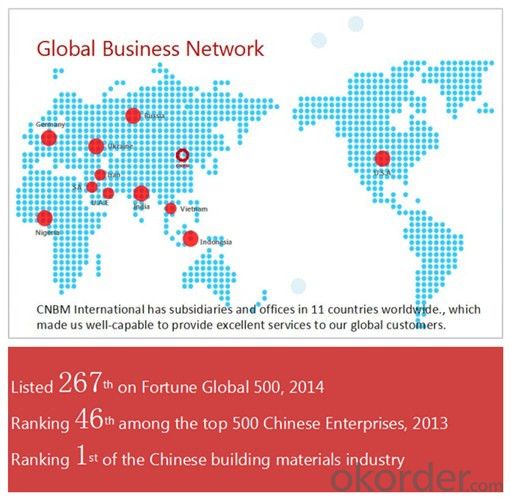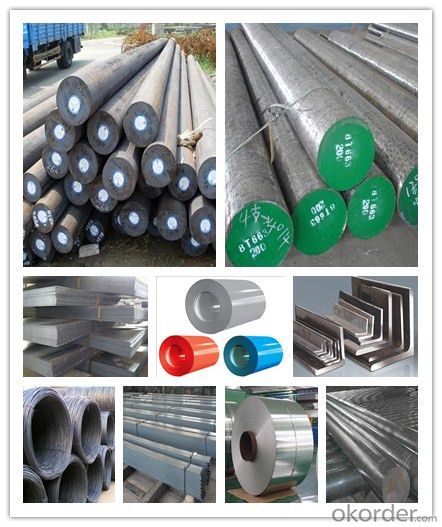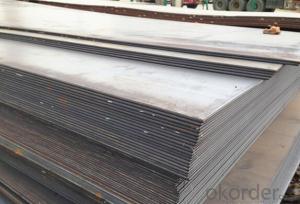DX51D G350 Prime Spangle Hot Dip Galvanized Steel Coil GI Coil
- Loading Port:
- Tianjin
- Payment Terms:
- TT OR LC
- Min Order Qty:
- 5 m.t.
- Supply Capability:
- 10000 m.t./month
OKorder Service Pledge
OKorder Financial Service
You Might Also Like
Item specifice
DX51D G350 Prime Spangle Hot Dip Galvanized Steel Coil GI Coil
Details of the DX51D G350 Prime Spangle Hot Dip Galvanized Steel Coil GI Coil
| goods | Hot dip galvanized steel coil and sheet |
| Technical Standard: | JIS 3302 / ASTM A653 / EN10143/EN10327 |
| Grade | DX51D / DX52D/ DX53D/ S250,280,320GD |
| Width | 500/650/726/820/914/1000/1200/1219/1220/1250mm |
| Thickness | 0.17-1.6mm (0.25-0.45mm is the most advantage thickness) |
| Type of coating: | galvanized |
| Zinc coating | Z60-120g/m2 |
| Surface treatment | chromed / skin pass/ oiled /un oiled /slightly oiled/ dry |
| Surface structure: | zero spangle / minimized spangle / regular spangle/ big spangle |
| MOQ | 5 Tons |
| Package: | Properly packed for ocean freight exportation in 20''containers |
| Price terms | FOB,CFR,CIF,CPT.CNF,CIP |
| Payment terms | 30%TT in advance+70% TT or irrevocable 70%L/C at sight |
| delivery time | 7days after receipt of 30% TT |
Specification of the DX51D G350 Prime Spangle Hot Dip Galvanized Steel Coil GI Coil
| Material | Tensile test | ||||||
| Rel | Rm (MPa) | Elongation | |||||
| (MPa) | 1.8~<2.0< span=""> | 2.0~<2.5< span=""> | 2.5~<3.2< span=""> | 3.2~<4.0< span=""> | ≥4.0 | ||
| SPHC | ≥270 | ≥29 | ≥30 | ≥31 | ≥32 | ≥32 | |
| SPHD | ≥270 | ≥32 | ≥33 | ≥35 | ≥37 | ≥39 | |
| SPHE | ≥270 | ≥33 | ≥35 | ≥37 | ≥39 | ≥41 | |
| SS330 | ≥205 | 330~430 | ≥26 | ||||
| SS400 | ≥245 | 400~510 | ≥24 | ||||
| SAPH370 | ≥370 | ≥255 | ≥32 | ||||
Supplier of the DX51D G350 Prime Spangle Hot Dip Galvanized Steel Coil GI Coil
CNBM International Corporation is the most import and export platform of CNBM group(China National Building Material Group Corporation) ,which is a state-owned enterprise, ranked in 270th of Fortune Global 500 in 2015.
With its advantages, CNBM International are mainly concentrate on Cement, Glass, Iron and Steel, Ceramics industries and devotes herself for supplying high quality series of refractories as well as technical consultancies and logistics solution.


Delivery of the DX51D G350 Prime Spangle Hot Dip Galvanized Steel Coil GI Coil
Packaging Detail | Sea worthy packing /as per customer's packing instruction |
Delivery Detail | 15 ~ 40 days after receiving the deposit |
Products Show

FAQ:
Are you a trading company or manufacturer? | Manufacturer |
What’s the MOQ? | 3 metric ton |
What’s your delivery time? | 15-35 days after downpayment received |
Do you Accept OEM service? | Yes |
what’s your delivery terms? | FOB/CFR/CIF |
What's the Payment Terms? | 30% as deposit,70% before shipment by T/T |
Western Union acceptable for small amount. | |
L/C acceptable for large amount. | |
Scrow ,Paybal,Alipay are also ok | |
Why choose us? | Chose happens because of quality, then price, We can give you both. Additionally, we can also offer professional products inquiry, products knowledge train (for agents), smooth goods delivery, excellent customer solution proposals. |
What's your available port of Shipment? | Main Port, China |
What’s your featured services? | Our service formula: good quality+ good price+ good service=customer's trust
|
Where are your Market? | Covering more than 160 countries in the world |
- Q:How does special steel contribute to the aerospace racing aftermarket industry?
- Special steel plays a significant role in enhancing the performance, durability, and safety of aircraft and racing vehicles within the aerospace racing aftermarket industry. Its importance cannot be overstated. To start with, critical engine components like turbine blades, compressor discs, and shafts are manufactured using special steel. These components must withstand extreme temperatures, pressures, and mechanical stress during operation. Nickel-based superalloys, which are a type of special steel alloy, provide excellent heat resistance, high strength, and exceptional corrosion resistance. This ensures that the engine systems perform at their best and are reliable. Additionally, special steel is essential in constructing airframe structures. Titanium alloys, which are lightweight yet possess high-strength properties, are crucial in reducing the overall weight of aircraft and racing vehicles. This reduction in weight leads to improved fuel efficiency, increased speed, and better handling capabilities. Therefore, special steel is an indispensable material in the aerospace racing aftermarket. Furthermore, special steel is utilized in the production of landing gear systems, which are vital for safe takeoffs, landings, and overall maneuverability. The landing gear must endure immense forces and shock loads during these operations. Special steel alloys such as chromium-molybdenum steel offer exceptional toughness, fatigue resistance, and impact strength. This ensures the landing gear's reliability and longevity. Moreover, special steel plays a crucial role in manufacturing aerospace racing aftermarket components like fasteners, bearings, and gears. These components require high strength, wear resistance, and dimensional stability to withstand the demanding conditions of racing and provide optimal performance. Special steel alloys like stainless steel and tool steel possess these desirable properties, ensuring the longevity and reliability of these crucial components. To sum up, special steel's exceptional properties, including high strength, heat resistance, corrosion resistance, and fatigue resistance, enable the production of reliable, efficient, and high-performance aircraft and racing vehicles within the aerospace racing aftermarket industry. Without special steel, the industry would be unable to achieve the level of advanced technology, speed, and safety that it currently enjoys.
- Q:How does special steel contribute to the longevity of products?
- There are several ways in which special steel contributes to the longevity of products. To begin with, its exceptional strength and durability are well-known. Special steel is specifically designed to endure extreme conditions, such as high temperatures, pressure, and corrosive environments. This makes it highly suitable for use in various industries, including aerospace, automotive, and construction. The remarkable strength of special steel enables products to bear heavy loads and resist deformation, ensuring they remain intact and functional for a prolonged period of time. For example, in the construction industry, special steel is frequently employed in structural components like beams and columns, which provide crucial support and stability to buildings over many years. Furthermore, special steel possesses excellent resistance to wear and abrasion. It can endure constant friction, impact, and contact with other materials without significant deterioration. This characteristic is vital in industries where products are subjected to continuous use, such as machinery, tools, and equipment. The utilization of special steel in these applications guarantees that the products remain in good working condition for an extended period, reducing the need for frequent repairs or replacements. Additionally, special steel exhibits exceptional resistance to corrosion, making it highly resistant to rust and other forms of corrosion. This property is especially advantageous in products exposed to harsh environments or chemicals, like marine vessels, pipelines, and chemical processing equipment. Through the utilization of special steel, manufacturers can significantly prolong the lifespan of these products, minimizing the risk of failure or breakdown due to corrosion. In conclusion, special steel contributes to the longevity of products through its provision of superior strength, durability, wear resistance, and corrosion resistance. Its extraordinary properties enable products to withstand harsh conditions, heavy loads, and continuous use, guaranteeing that they remain functional and reliable for an extended period. By incorporating special steel into their designs, manufacturers can greatly enhance the lifespan of their products, leading to cost savings, improved reliability, and customer satisfaction.
- Q:What are the different methods of surface polishing for special steel?
- Some of the different methods of surface polishing for special steel include mechanical polishing, chemical polishing, electropolishing, and abrasive blasting. Mechanical polishing involves using abrasive materials like sandpaper or polishing wheels to remove imperfections and create a smoother surface. Chemical polishing uses chemical solutions to dissolve a thin layer of the steel's surface, resulting in a polished finish. Electropolishing is an electrochemical process that removes surface material through the application of an electric current, resulting in a smooth and shiny surface. Abrasive blasting, also known as sandblasting, involves propelling abrasive particles at high speeds to remove rust, scale, or other surface contaminants, leaving a polished surface.
- Q:How does corrosion-resistant steel protect against chemical attacks?
- Corrosion-resistant steel protects against chemical attacks by forming a protective oxide layer on its surface, which acts as a barrier against corrosive substances. This oxide layer is highly stable and prevents the steel from reacting with chemicals, thus preventing corrosion and degradation of the material.
- Q:Can special steel be used in the power transmission industry?
- Yes, special steel can be used in the power transmission industry. Special steel alloys offer enhanced strength, durability, and resistance to wear and corrosion, making them suitable for various components in power transmission equipment such as gears, shafts, bearings, and connectors. These alloys can withstand high loads, extreme temperatures, and harsh environmental conditions, ensuring reliable performance and longevity in power transmission applications.
- Q:What are the different forms of special steel available in the market?
- In the market, one can find various types of special steel, each possessing its own distinct characteristics and uses. Here are some of the most commonly encountered forms: 1. Stainless Steel: A versatile variant of special steel, this type exhibits exceptional resistance to corrosion and staining. It finds widespread application in the manufacturing of cutlery, kitchen appliances, and medical equipment. 2. Tool Steel: Highly durable and resistant to wear and tear, this special steel is primarily employed in the production of cutting tools, molds, and dies. 3. High-speed Steel: Designed to withstand elevated temperatures and maintain hardness even at high speeds, this form is commonly utilized in the creation of drill bits, saw blades, and gear cutters. 4. Alloy Steel: To enhance strength and durability, alloying elements like chromium, nickel, or molybdenum are added to this special steel. It finds extensive use in the automotive industry, construction, and machinery manufacturing. 5. Carbon Steel: This cost-effective type of special steel is favored for its high strength-to-weight ratio. It is commonly employed in the construction of buildings, bridges, and pipelines. 6. Maraging Steel: Known for its exceptional strength and toughness, this low-carbon, high-nickel steel is frequently employed in aerospace and defense applications, including aircraft components and missile casings. 7. Spring Steel: Engineered to withstand high stress and retain its shape under heavy loads, this special steel is widely used in the production of springs, such as those found in automotive suspensions and mechanical devices. These examples merely scratch the surface of the diverse range of special steel available in the market. Each type possesses its own unique properties and applications, rendering them suitable for a multitude of industries and manufacturing processes.
- Q:Are there any disadvantages of using special steel?
- Yes, there are a few disadvantages to using special steel. Firstly, special steel is typically more expensive than regular steel due to its unique composition and properties. This can make it less accessible or viable for certain projects with budget constraints. Additionally, special steel often requires specialized knowledge and expertise for its proper handling and processing, which may limit its use to industries or professionals with the necessary skills. Finally, the specific characteristics of special steel, such as high strength or corrosion resistance, may not be required for every application, leading to unnecessary costs or over-engineering in certain cases.
- Q:What are the different methods for improving the corrosion resistance of special steel?
- There are several methods for improving the corrosion resistance of special steel. 1. Alloying: One of the most common methods is to add alloying elements to the steel composition. These elements, such as chromium, nickel, and molybdenum, form a protective layer on the surface of the steel, preventing corrosion. Stainless steel, for example, contains a high amount of chromium, which forms a passive film that protects the steel from corrosive environments. 2. Surface treatments: Various surface treatments can be applied to special steel to enhance its corrosion resistance. These treatments include electroplating, hot-dip galvanizing, and chemical passivation. Electroplating involves coating the steel with a layer of metal, such as zinc or nickel, which acts as a sacrificial anode, protecting the steel from corrosion. Hot-dip galvanizing involves immersing the steel in molten zinc, forming a durable, corrosion-resistant coating. Chemical passivation involves treating the steel with a solution that removes surface impurities and forms a protective oxide layer. 3. Protective coatings: Applying protective coatings can significantly improve the corrosion resistance of special steel. Coatings such as paint, epoxy, or polyurethane can act as a barrier, preventing moisture and corrosive substances from coming into contact with the steel surface. These coatings can be applied by spray, dip, or powder coating methods. 4. Heat treatment: Heat treatment can modify the microstructure of special steel, improving its corrosion resistance. Processes such as annealing, quenching, and tempering can alter the steel's properties, making it more resistant to corrosion. Heat treatment can also relieve internal stresses, which can contribute to corrosion. 5. Environmental control: Controlling the environment in which the special steel is used can also help improve its corrosion resistance. This includes measures such as maintaining proper humidity levels, controlling pH, avoiding exposure to corrosive chemicals, and implementing effective ventilation systems. By minimizing the exposure of special steel to corrosive elements, its corrosion resistance can be enhanced. Overall, a combination of these methods can be employed to improve the corrosion resistance of special steel, ensuring its longevity and performance in corrosive environments.
- Q:What are the applications of special steel in the aerospace industry?
- Special steel has numerous applications in the aerospace industry due to its unique properties. It is extensively used in the manufacturing of aircraft components such as engine parts, landing gears, and structural elements. Special steel offers high strength, excellent corrosion resistance, and exceptional heat resistance, making it ideal for withstanding extreme conditions experienced during flight. Additionally, its lightweight nature helps reduce the overall weight of the aircraft, leading to improved fuel efficiency and performance. Overall, special steel plays a crucial role in enhancing the safety, durability, and efficiency of aerospace equipment.
- Q:Can special steel be used in the railway industry?
- Yes, special steel can be and is commonly used in the railway industry. Special steel alloys such as manganese steel, stainless steel, and wear-resistant steel are often utilized in the manufacturing of railway tracks, wheels, axles, and other components. These special steel materials offer enhanced strength, durability, and resistance to corrosion and wear, making them ideal for withstanding the heavy loads, frequent use, and harsh environmental conditions experienced in the railway industry.
1. Manufacturer Overview |
|
|---|---|
| Location | |
| Year Established | |
| Annual Output Value | |
| Main Markets | |
| Company Certifications | |
2. Manufacturer Certificates |
|
|---|---|
| a) Certification Name | |
| Range | |
| Reference | |
| Validity Period | |
3. Manufacturer Capability |
|
|---|---|
| a)Trade Capacity | |
| Nearest Port | |
| Export Percentage | |
| No.of Employees in Trade Department | |
| Language Spoken: | |
| b)Factory Information | |
| Factory Size: | |
| No. of Production Lines | |
| Contract Manufacturing | |
| Product Price Range | |
Send your message to us
DX51D G350 Prime Spangle Hot Dip Galvanized Steel Coil GI Coil
- Loading Port:
- Tianjin
- Payment Terms:
- TT OR LC
- Min Order Qty:
- 5 m.t.
- Supply Capability:
- 10000 m.t./month
OKorder Service Pledge
OKorder Financial Service
Similar products
New products
Hot products
Related keywords

































